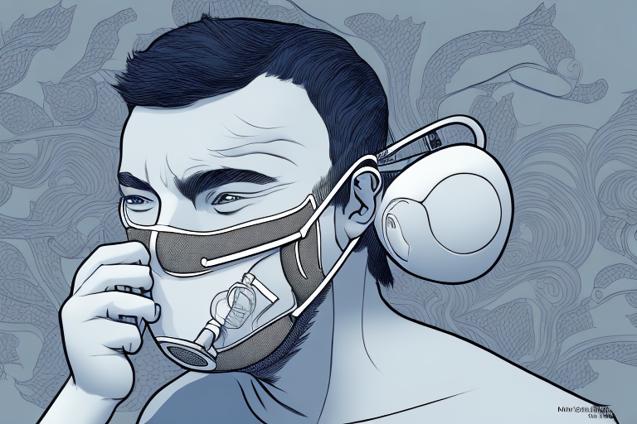
Discover how to prioritize your health and well-being while living on a boat by identifying and treating common sleep disorders that can affect sailors in our latest blog post.
Sailing and Sleep Disorders: How to Identify and Treat Them
Sailing the open seas with your family can be an incredibly rewarding and fulfilling experience. However, it’s essential to prioritize your health and well-being while living on a boat. One aspect of health that is often overlooked is sleep. In this article, we will discuss common sleep disorders that can affect sailors, how to identify them, and how to treat them to ensure you and your family get the rest you need while living on the water.
Table of Contents
Introduction
Sleep is a crucial aspect of our overall health and well-being. It allows our bodies to recover from the day’s activities, helps maintain a healthy immune system, and plays a vital role in cognitive function. When living on a boat, it’s essential to ensure that you and your family are getting the proper amount of restful sleep.
However, the unique environment and lifestyle of living on a boat can sometimes lead to sleep disorders. In this article, we will discuss some of the most common sleep disorders that can affect sailors, how to identify them, and how to treat them to ensure you and your family get the rest you need while living on the water.
Common Sleep Disorders
Insomnia
Insomnia is a common sleep disorder characterized by difficulty falling asleep, staying asleep, or waking up too early. It can be caused by various factors, including stress, anxiety, and environmental factors such as noise, light, and temperature. Living on a boat can sometimes exacerbate these factors, leading to insomnia.
Sleep Apnea
Sleep apnea is a potentially serious sleep disorder in which breathing repeatedly stops and starts during sleep. This can lead to poor sleep quality and excessive daytime sleepiness. There are two main types of sleep apnea: obstructive sleep apnea (OSA) and central sleep apnea (CSA). OSA is more common and occurs when the muscles in the throat relax, causing a blockage in the airway. CSA is less common and occurs when the brain fails to send the proper signals to the muscles that control breathing.
Restless Legs Syndrome
Restless Legs Syndrome (RLS) is a neurological disorder characterized by an irresistible urge to move the legs, often accompanied by uncomfortable sensations. These symptoms typically occur in the evening or at night when the person is resting, making it difficult to fall asleep or stay asleep. RLS can be exacerbated by a sedentary lifestyle, which can sometimes be the case when living on a boat.
Circadian Rhythm Disorders
Circadian rhythm disorders are disruptions in a person’s internal body clock, which regulates the sleep-wake cycle. These disorders can lead to difficulty falling asleep, staying asleep, or waking up at the desired time. Living on a boat can sometimes disrupt the natural light-dark cycle, leading to circadian rhythm disorders.
Identifying Sleep Disorders
If you or a family member are experiencing difficulty sleeping, it’s essential to identify the underlying cause. Keep a sleep diary for at least two weeks, noting the following:
- When you go to bed and wake up
- How long it takes you to fall asleep
- How many times you wake up during the night
- How long you are awake during these awakenings
- How rested you feel in the morning
- Any daytime sleepiness or fatigue
- Any factors that may be affecting your sleep, such as noise, light, or temperature
Share this information with your healthcare provider, who can help determine if a sleep disorder is present and recommend appropriate treatment options.
Treatment Options
The treatment for sleep disorders will depend on the specific disorder and its severity. Some common treatment options include:
Lifestyle Changes
Making changes to your daily routine and sleep environment can often improve sleep quality. Some suggestions include:
- Establishing a consistent sleep schedule by going to bed and waking up at the same time every day, even on weekends
- Creating a relaxing bedtime routine, such as reading, listening to calming music, or practicing relaxation techniques
- Ensuring your sleep environment is comfortable, dark, quiet, and cool
- Limiting exposure to screens (TV, computer, smartphone) before bedtime
- Avoiding caffeine, nicotine, and alcohol close to bedtime
- Getting regular exercise, but not too close to bedtime
- Exposing yourself to natural sunlight during the day to help regulate your circadian rhythm
Medications
In some cases, medications may be prescribed to help treat sleep disorders. These can include:
- Sleep aids for short-term treatment of insomnia
- Medications to help manage restless legs syndrome
- Continuous positive airway pressure (CPAP) therapy or other treatments for sleep apnea
It’s essential to discuss any medications with your healthcare provider to ensure they are appropriate for your specific situation and to be aware of any potential side effects.
Therapy
Cognitive-behavioral therapy (CBT) has been shown to be effective in treating insomnia and other sleep disorders. CBT focuses on identifying and changing negative thoughts and behaviors that contribute to sleep problems. This can include relaxation techniques, sleep restriction therapy, and stimulus control therapy.
Conclusion
Sleep is a crucial aspect of our overall health and well-being, and it’s essential to prioritize it while living on a boat. By being aware of common sleep disorders, identifying any issues, and seeking appropriate treatment, you can ensure that you and your family get the rest you need to fully enjoy your sailing adventures.